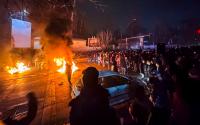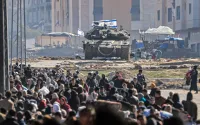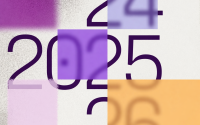19 April 2007Michael E. Ruane and Chris L. Jenkins
Cho Seung Hui paused Monday morning during the shootings at Virginia Tech to stop at a post office and mail to NBC News in New York a disturbing package of pictures, writings and video before returning to the rampage.
The communications sought to explain his actions but served mostly to display his anger and illness. With threatening images and in a menacing video, America's deadliest gunman photographed himself wearing black and a backward baseball cap and pointing handguns at the camera and himself. He blamed rich people and humanity at large for the perceived wrongs that drove him to kill.
A $14.40 U.S. Postal Service express parcel, which had the wrong Zip code and an incorrect street address, was sent from Blacksburg at 9:01 a.m. Monday, about two hours after Cho's first two killings at a dormitory, West Ambler Johnston Hall.
About 45 minutes after mailing the package, he went to Norris Hall and killed an additional 30 people before killing himself as police closed in. As if trying to justify his plot, Cho glared into the camera and in a rambling diatribe said: "You had a hundred billion chances and ways to have avoided today," according to excerpts aired last night by NBC. "But you decided to spill my blood. You forced me into a corner and gave me only one option. The decision was yours. Now you have blood on your hands that will never wash off." "Jesus loved crucifying me," he said at another point. "He loved inducing cancer in my head, terrorizing my heart and ripping my soul all this time."
"I didn't have to do this," he said. "I could have left. I could have fled. But no."
Investigators have been mystified by the gap -- from 7:15 to 9:45 a.m. -- between the bursts of homicide Monday, and the university has been criticized for a perceived lack of urgency during the lull.
The Virginia State Police superintendent, Col. Steve Flaherty, said Cho's package "may be a very new critical component of this investigation. We are in the process . . . of attempting to analyze and evaluate its worth."
Cho, who has been described by classmates and teachers as brooding, withdrawn and silent, also left a rambling, angry, multi-page document in his dorm room. He wrote at least one bomb threat that police found, as well as a novel and some disturbing poems and plays.
Law enforcement sources said his letter to NBC was nearly identical to the ones found in his dorm room. All mention his disgust toward the privileged and contain the cryptic words "Ismael Ax," which also was tattooed on one of his arms. Authorities are trying to figure out what the words mean.
NBC received the package as fresh reports emerged yesterday of Cho's mental health issues and earlier interaction with Virginia Tech police.
The authorities had investigated Cho for bothering two female classmates in 2005, Tech Police Chief Wendell Flinchum said at a news conference. Cho had hinted at suicide shortly afterward and was temporarily committed, against his will, to a psychiatric hospital for evaluation.
There he was assessed as "mentally ill" but not an imminent danger to himself or others, according to court documents. Because he was not a threat, he was released, the documents say. Campus police said they had no more encounters with Cho.
Both pieces of news came as the school was still trying to regain its balance after the calamity.
But seeing Cho in his burst of anger on television brought many back to the horrors of Monday.
"It was very scary because it's the closest we're ever going to get to seeing what [the people at Norris Hall] saw," said Kristin Fleming-Dahl, a 19-year-old sophomore. "For some of them, that were their last moments. Seeing the pictures made it more real. It was like a slap in the face."
Fleming-Dahl said NBC was too quick to release the pictures. "It probably would have been better to wait," she said.
Michael A. Mason, who heads the FBI's criminal investigations division, said Cho's mailing "feeds into exactly what he wanted to accomplish by this heinous act."
The package includes one nightmarish photograph of a menacing, black-gloved Cho posing in a black baseball cap holding two black pistols at arm's length. He is wearing a black T-shirt and what appears to be a tan safari vest, resembling an apparition out of a violent video game.
In the excerpted pictures and video, Cho has a military-style haircut. Parts of the video seem to have been shot inside a car. Some look as though they might have been shot in a dorm room with white-painted cinderblock walls.
NBC said the package apparently was delayed by the flawed Zip code. It was noticed by a postal worker in New York who spotted the Blacksburg return address and what Cho wrote as his name in the sender's box: "A Ishmael," similar to the well-publicized "Ismael Ax." NBC News President Steve Capus said the network re ceived the package in Tuesday's mail delivery. It was not opened until yesterday and did not include any images of the massacre, Capus said in a written statement.
Among the materials are 23 QuickTime video files showing Cho talking to the camera, Capus said.
The production of the videos indicated that Cho had worked on the package for some time, because he not only "took the time to record the videos, but he also broke them down into snippets" that were embedded paragraph by paragraph into the main document on a CD-ROM, Capus said.
Before the video was released, officials in Blacksburg spoke of their previous encounter with Cho. In December 2005, he was declared mentally ill and was temporarily but involuntarily sent to a Christiansburg mental-health center, according court records.
The night at the mental-health facility came a few weeks after police had been contacted by a female student upset over e-mails Cho had sent her, said Flinchum, the Tech police chief.
The student declined to press charges, and Cho was referred to the university disciplinary system, which took no action because the offense seemed too minor, the chief said.
The next month, a second female student complained to campus police, and within 24 hours, police got a call that Cho might be suicidal, Flinchum said. Police visited him and urged him to seek counseling, the chief said.
On Dec. 13, 2005, a temporary detention order, instructing that Cho be taken to the Carilion St. Albans Psychiatric Hospital in nearby Radford, was signed by a judge, according to court papers. The next day, a Virginia Department of Mental Health document recorded a mental-health professional's description of Cho as seeming blank and "depressed," but denying "suicidal ideation. He does not acknowledge symptoms of a thought disorder. His insight and judgment seem normal."
The form described Cho as mentally ill but added that he did not present an imminent danger to himself or others and did not require involuntary hospitalization.
It was not clear yesterday how long Cho spent in the hospital, but the documents indicate it was one day.
University officials stressed that there was no threat in the e-mails, and the two female recipients only considered them annoying. Neither of the two women was among Cho's victims Monday. "No criminal activities had taken place," Flinchum said.
Ed Spencer, a university associate vice president of student affairs, said the school would not comment on Cho's disciplinary record. "Even upon death, that record is still protected," he said.
Whether the university should have done more after having this contact with Cho will be part of the major review that will begin soon by an independent panel, officials said.
Virginia Gov. Timothy M. Kaine (D) announced yesterday that former state police superintendent Gerald Massengill will participate in the review of the university's response to the shootings.
The incidents came to light at a time when Cho's conduct and writings had raised concerns among several of his teachers in the school's English Department.
Authorities also revealed yesterday what was seized in their search of Cho's university residence, at 2121 Harper Hall.
The search warrant, filed late Tuesday in Montgomery County, Va., Circuit Court, said the items taken included a "folding knife and combination pad lock," a Compaq computer, various documents and writings from Cho's computer, nine books and two notebooks.
Officials also said that before purchasing the 9mm Glock handgun or the Walther P22, which he used in the killings, Cho would have had to fill out a Virginia State Police eligibility form for an instant background check.
One question on the form asks: "Have you ever been adjudicated legally incompetent, mentally incapacitated, or been involuntarily committed to a mental institution?"
Once Cho's background check came back clean, he would have had to fill out federal form No. 4473 asking once again if he had been adjudicated "mentally defective" or committed to a mental institution.
Cho's 24-hour detention before a hearing on his mental status probably does not meet the definition of being involuntarily committed, legal experts said. But there is a question of whether the detention would meet the broader federal standard.
Back at Virginia Tech, the NBC video was the talk of the campus.
Maddy Barnes, a junior English major from Leesburg, had a British literature class with Cho in 2005, when he was briefly hospitalized.
"It's so disturbing," Barnes said of Cho's videos.
"It's horrifying," agreed Pete Hughes, a junior theater major. "It just showed how calculating he was. It definitely gave the answer that he woke up intending to do this."
But, he added, "It's comforting to a degree." Barnes, nodded, saying she understood that. It showed he was not a normal guy who just snapped, she said.
Both students thought the videos showed how narcissistic Cho was. He clearly knew this would bring him attention.
Others, though, said the video did not help them understand.
"I personally don't care what he has to say," said Daniel Frawley, a 2003 graduate, who lives in Blacksburg. "There is no possible good reason for anything that happened. No possible explanation he can offer."
http://www.washingtonpost.com/wp-dyn/content/article/2007/04/18/AR2007041800834.html?hpid=topnews






